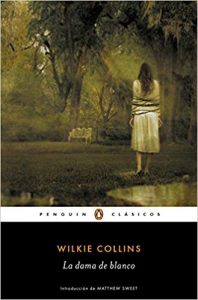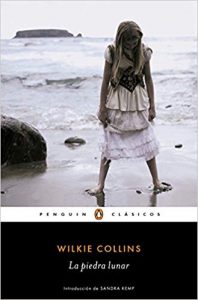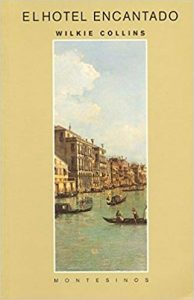The generational coincidence between Edgar Allan Poe and the own Collins, also supposes a thematic connection that seems to map a creative space between the United States and England. From Boston to London, these two geniuses of the nineteenth century shared hells from which to rescue stories of crime, of the wickedness of the human being.
In the end, the two also ended up living more in that underworld of madness from addictions to alcohol or opiates. In Poe's case, his vices locked his soul behind the very walls of his story "the tell-tale heart." For Wilkie Collins, much more prolific in his bibliography (He also lived many more years), drugs were a palliative for various ailments that led him to more fanciful stories in his general repertoire of the sinister.
Ultimately, both cultivated that incipient policeman amid the mists of the fantastic and the terrifying as a consequence of the darkened psyche of both, for the disparate causes already mentioned. And since the label of the cursed creator always points more to whoever ends his days earlier, Poe ended up taking more glory from lovers of gothic horror or the darkest policeman.
But, in an exercise of sincerity, despite Poe's powerful imagination, Collins is a richer narrator, with more reading possibilities. It is impossible to know if the Collins suffering from his ailments and marked by his treatments could have been another type of writer. Because sometimes Collins went so far as to assure that he did not remember how he had written any of his novels (The same recognized Stephen King in Carrie's case. It was in the eighties and cocaine was an inseparable friend). Be that as it may, William Wilkie Collins has a lot to offer and hardly ever disappoints.
Top 3 Recommended Novels by Wilkie Collins
The Lady in white
Si Becker had he ever devoted himself to the detective novel, this would become a work that would be quite in line with what we might expect from the Sevillian genius.
The romantic but sinister setting, a kind of black magic that seems to float in the environment like in Becquerian legends. We would exchange Veruela for the English countryside and we would find in this epistolary work an effect very, very similar to what Becquer wrote in his cell in the Aragonese Cistercian monastery.
Walter Hartright's missives guide us through the character's particular adventure towards a mysterious space, full of dark intuitions, passions and drives that you never know where they will break.
There are those who speak of the lady in white as a real woman. And of a dispute between the passionate, the police and the judicial that ends up revealing the miseries of our own conception of the just. But the best thing is how the narration takes us out into a misty space where magic, imagination and madness play at will with our reason.
The moonstone
Before the moon was stepped on in July 1969, the fascination for our satellite proliferated in a thousand and one legends about selenites, cosmic influences and any other hypotheses. Not that this story is about space travel.
Rather, it is about importing all that magic from our cosmic lighthouse to build a novel between adventure, mystery and crime. There are no victims or killers. It is only a matter of discovering the thief who has taken an unparalleled piece, a moonstone in the hands of the powerful young Raquel Verinder.
The mysterious characteristics that surround the jewel transform the criminal's relentless search into a greater insight into the personality of the protagonists of a choral work. Because the moonstone has something spiritual about it.
Thus, we begin by approaching Raquel's guests, probing them like investigators and we end up tracing the coincidences, the vagaries of fate and the most unexpected reasons that end up sharing primal aspects of a deductive policeman, balancing themselves with a fantastic point that serves for surprise and surprise. virtuosity of a work as heterogeneous as it is fascinating.
The haunted hotel
Horror novels, with that nineteenth-century addition of Collins or Poe, acquire a special taste for a current reader. It is about the melancholic seasoning of those days of first modernity, between a pristine technification and a progressive opening to globalization.
I don't know, maybe it's some kind of frustrated intention to go back to those days and stop the most out-of-the-box capitalism today, the dystopias of the writers that came later, in the twentieth century. Maybe that's why this scary haunted house. The protagonists peek into the shadows of what they are, prolonged to this day from uncontrolled ambitions.
Rooms full of ghosts recovered from the most ominous fears of the human being. The doubt about how these ghosts can exist if not from our own madness. In those days the world could still believe in God or in ghosts, in paradises to be found on Earth ..., but the worst thing was the certainty that we, humans ourselves, were the worst enemies, capable of the worst deception, of awakening the worse ghosts, simply out of frustration and hatred.



